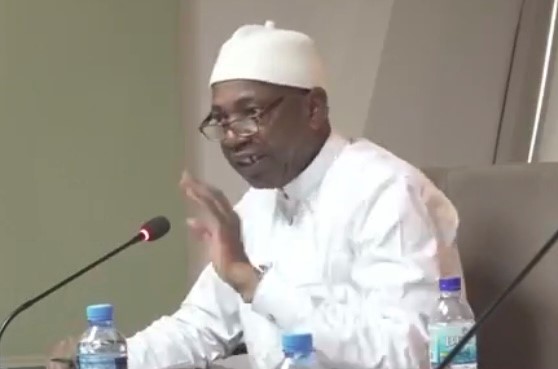By: Momodou Justice Darboe
The Chairman of the Gambia Chamber of Commerce and Industry (GCCI), Edrisa Mass Jobe, has stressed that no importer or manufacturer of cement must be allowed to promote anti-competition in the cement businessby forming cartels or wielding a monopoly.
The Gambia government and the Cement Importers and Traders Association (CITA) have yet to find common ground over the former’s decision to increase the levy on a bag of cement from D30 to D180.
The government said the tariff increase was necessary to protect “local cement manufacturers”.
However, the decision has led to cement shortages and retail price increases in parts of the country.
The GCCI chair stressed that it’s the considered view of the Chambers that the greater public interest must supersede all other considerations in the cement imbroglio.
“From the Chambers’s point of view, both the importers and the manufacturers’ association are our members and they came to the chambers differently. After listening to them, we are of the view that we should maximize for The Gambia. we should look at what is in the interest of the people rather than what is specifically in the interest of the importers or what is in the interest of the people we call manufacturers,” Chairman Jobe told The Voice in an interview on Monday.
He pointed out that GCCI’s first contention is that cement is a “very” important commodity. He continued: “It’s a basic commodity because if you look at The Gambia today, a huge chunk of the GDP is related to remittances. Actually, we are the highest in terms of the contribution [remittance] in the entire Africa. So, remittance forms a big chunk of our economy… Almost 10% of our GDP. It’s more than groundnut production. And the remittance in The Gambia is partly to help people to feed but a lot of remittance goes to construction. And we have to ensure that this remittance inflow continues.”
According to the GCCI chair, the impact would be massive if The Gambia loses on its current remittance in-flow.
“Where we are today, if we’re going to lose these remittances, it’s going to impact the country in a huge way even other businesses like petroleum businesses or telecom businesses because the money people use to pay for transport or buy food is mainly from remittances and that’s also how they pay their taxes,” he explained.
“If the price of cement were to astronomically increase, we would be denying money from the people who work hard in the US or The Gambia and we are giving this money away to either importers or manufacturers in a way that is easy and we don’t want that,” he added.
Chairman Jobe pointed out that cement has a huge potential to generate revenue for the government.
“Cement can be a big potential for revenue for the government. If you estimate that in The Gambia, we can do, for example, 10 million bags of cement per year, and the government decides to tax each bag D30, that is D300 million revenue/tax potential. But recently, the government said they going to increase it to D180 per bag. If that’s the case, it means that there is a tax potential of D1.8 billion,” he explained.
“That is huge and the government needs that from our point of view. The government needs that so that they can buy dialysis machines for the hospitals. There are a lot of areas where the government needs money such as salaries. It’s a huge revenue potential. In this process, we are not only maximizing for the business. We have to think of maximizing for the larger population.”
He pointed out that the construction industry is a driver for remittances in-flow and job creation.
The GCCI chair maintained that the case that cement is manufactured in The Gambia is a weak premise because the country produces none of the raw materials needed for producing cement.
“To produce cement, you need limestone and we don’t have limestone. Manufacturing must be encouraged but we are saying that to encourage manufacturing, the government must not encourage it from the tariff level. It should encourage it by reducing electricity and reducing corporate tax because if you increase the tariff, you are only making the price higher. And that inefficiency of not collecting duties, you are also making the public suffer,” he stated.
Meanwhile, Chairman Jobe pointed out that CITA should not be allowed to become a cartel while “manufacturers” should not be turned into monopolies.
“More importantly, we should not allow CITA to become a cartel but also avoid turning these so-called manufacturers into monopolies,” he added.
He said GCCI wants the government to continue its dialogue with CITA.
“So, we are encouraging the government not to end their dialogue with the importers and so-called… But let us be more collaborative…They include the Gambia Chamber of Commerce and some of the consumer associations and the Gambia Competitive Commission to come together because it looks like a decision has been made but we are just saying let us not close the doors,” he added.
See our Wednesday edition for the entire interview.





